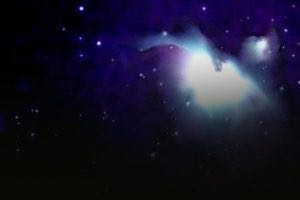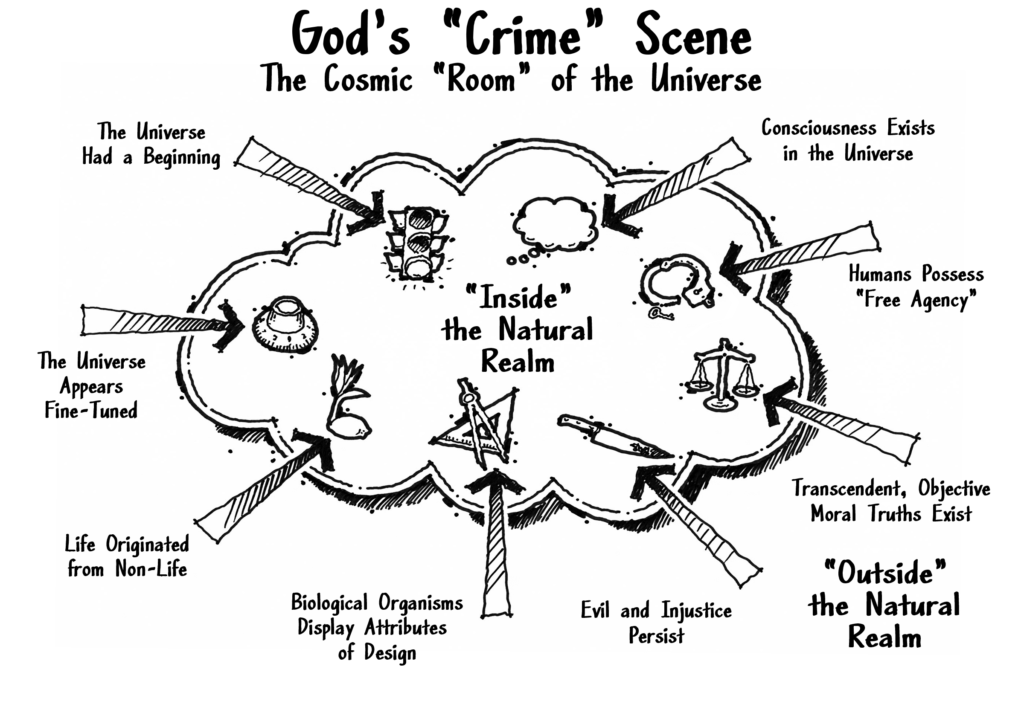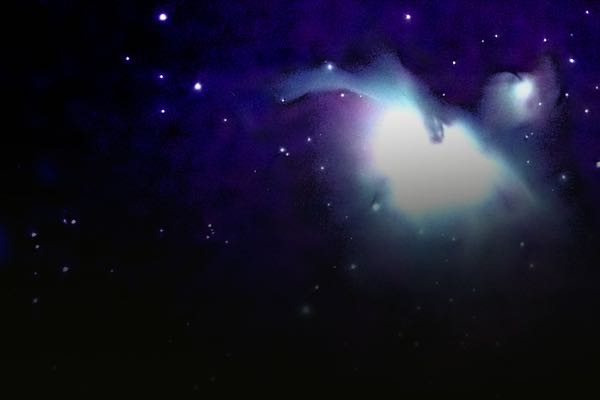
During most of my early investigative career, I was a committed atheist and resolute naturalist. I rejected supernaturalism thoroughly, denying both the existence of a supernatural God and the possibility of the miraculous. I truly believed everything I observed in the universe could be explained and attributed to natural, physical causes and processes. Thinking of the universe as a “room,” I didn’t believe there was any evidence pointing to anyone outside. I certainly didn’t believe anything “extra-natural” or “supra-natural” entered this natural realm. But I hadn’t yet looked at the evidence carefully; I wasn’t an experienced investigator. Over the years, I learned how to evaluate and assemble evidential cases, and along the way—at the age of thirty-five—I was introduced to the New Testament.
I became interested in God’s existence only after investigating the gospels as eyewitness accounts. (I describe this investigation in detail in my book Cold-Case Christianity.) The New Testament accounts passed the same four-part test I apply to all my witnesses, yet I still rejected them on the basis of their miraculous stories. As a naturalist, I believed the accounts of miracles in the biblical narratives disqualified them as reliable history. But what if I was wrong in my anti-supernatural presuppositions? It was time for me to look carefully at the evidence for God’s existence. If a supernatural being did exist, the miracles in the Gospels would be possible and maybe even reasonable. The case for God’s existence was an integral part of the case for the reliability of the Gospels.
Like many of my death scene investigations, my examination of the natural universe required me to look at the characteristics of the “room” and determine if they could be explained fully by what already existed within the “four walls.” Was there any evidence inside the universe pointing to the existence or intervention of a supernatural being outside the universe? My most important question was, “Can I account for all the evidence in this room by staying in the room?
As I considered the natural “room” of the universe, I identified and listed four categories of evidence for consideration:
1. Cosmological Evidence
Our universe had a beginning.
Our universe appears to be fine-tuned for human life.
2. Biological Evidence
Life in our universe emerged from non-life.
Biological organisms appear to be designed.
3. Mental Evidence
Non-material consciousness emerged from unconscious matter.
As humans, we are “free agents” in our otherwise “cause and effect” universe.
4. Moral Evidence
Transcendent, objective moral truths exist in our universe.
Evil and injustice continue to persist, in spite of our best efforts.
The features of the universe must be explained, and they can be attributed either to something inside the natural realm or to something outside the natural realm. Share on X
These features of the universe must be explained, and they can be attributed either to something inside the natural realm or to something outside the natural realm. In many ways, our investigation of God’s existence is very similar to my death investigations:

Illustration from God’s Crime Scene
In both cases, several evidences in the “room” require explanation. Their origin must be identified before we can decide the correct nature of the scene. In my book, God’s Crime Scene: A Homicide Detective Investigates the Evidence for a Divinely Created Universe, I examine the evidence inside the natural, physical realm of the universe to determine if there is someone we need to look for outside the natural, physical realm. After investigating these eight important pieces of evidence (in four very different categories) I determined the most reasonable inference is a suspect with the following characteristics:
1. External to the universe
2. Non-spatial, atemporal, and non-material
3. Uncaused
4. Powerful enough to create everything we see in the universe
5. Specifically purposeful enough to produce a universe fine-tuned for life
6. Intelligent and communicative
7. Creative and resourceful
8. A conscious Mind
9. Free to choose (and create) personally
10. The personal source of moral truth and obligation
11. The standard for good by which we define evil

J. Warner Wallace is a Dateline featured Cold-Case Detective, Senior Fellow at the Colson Center for Christian Worldview, Adj. Professor of Christian Apologetics at Talbot School of Theology, Biola University, author of Cold-Case Christianity, God’s Crime Scene, and Forensic Faith, and creator of the Case Makers Academy for kids.
Subscribe to J. Warner’s Daily Email
Save
Save
Save
Save
Save
Save
Save
Save
J. Warner Wallace is a Dateline featured cold-case homicide detective, popular national speaker and best-selling author. He continues to consult on cold-case investigations while serving as a Senior Fellow at the Colson Center for Christian Worldview. He is also an Adj. Professor of Christian Apologetics at Talbot School of Theology, Biola University, and a faculty member at Summit Ministries. He holds a BA in Design (from CSULB), an MA in Architecture (from UCLA), and an MA in Theological Studies (from Gateway Seminary).
































